
How To Make Your Bedroom Sleep Friendly This Summer
We spend a third of our lives sleeping – that’s roughly 26 years per...

We spend a third of our lives sleeping – that’s roughly 26 years per person – with two hours every night dedicated to dreaming. In addition, Brits typically spend around seven hours per week at work. So, it’s perhaps no surprise that the dreams we experience are often related to our professional lives.
Dreams remain a mystery and it’s seemingly impossible to pinpoint exactly what they reflect. However, studies have suggested that dreams are not random and are in fact telling us something meaningful about ourselves.
Here at Neville Johnson, we wanted to investigate the relationship between our dreams and our working lives, studying whether certain jobs induce more stressful dreams, whether work can creep into our dreams and how dreams can impact our job performance. By surveying 2,205 Brits who work across a range of job types, we were able to dig into this topic in detail. We also enlisted our in-house sleep expert to provide a little more context on the dreams we have and how we can get a better night’s sleep.
So, let’s get started.
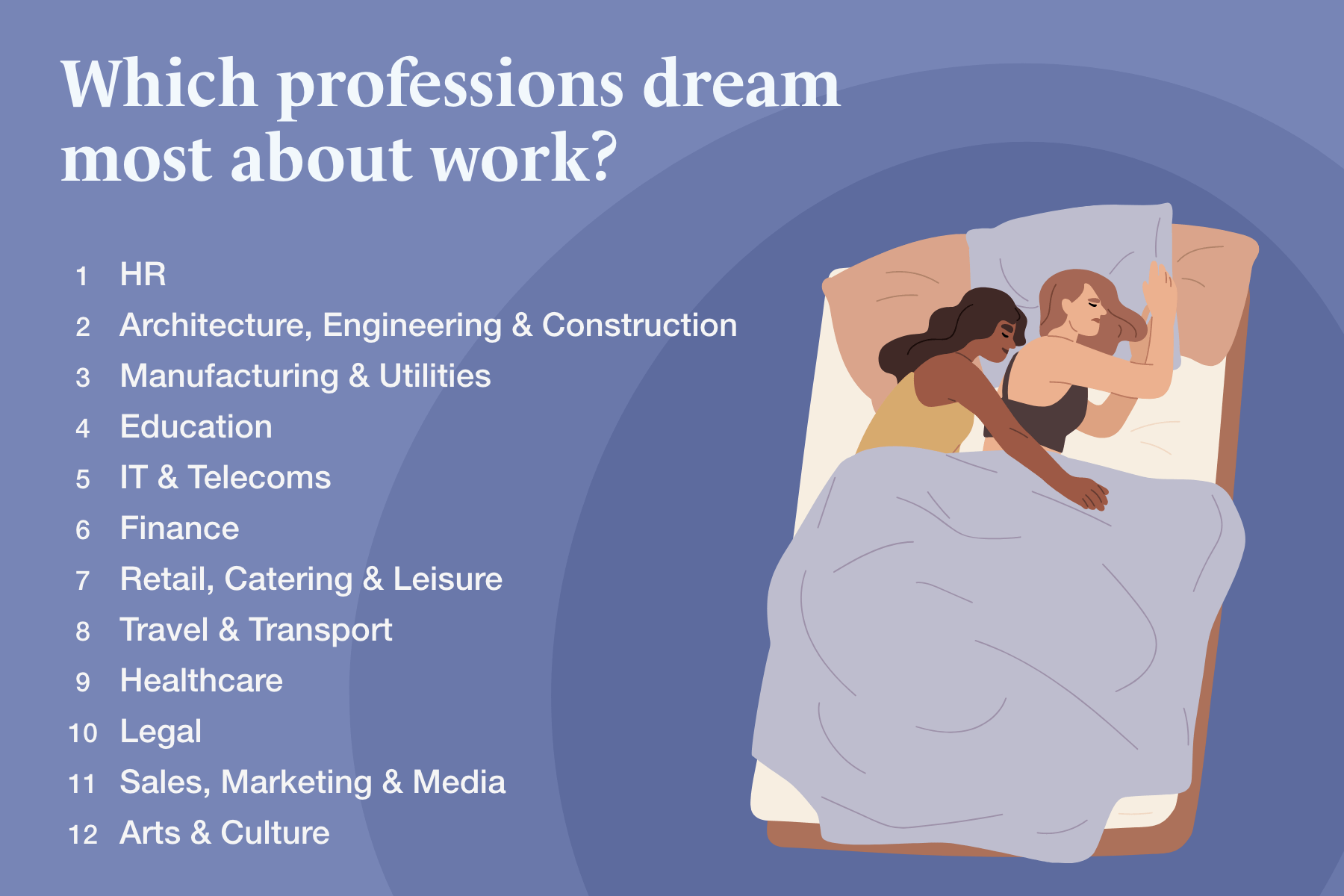
According to our findings, people in HR dream about work the most. Like many professions, HR is known to be a stressful career path, including long hours and tight deadlines – and this seems to be reflected in the frequency of work-related dreams.
Second on the list are Architecture, Engineering & Construction professionals who also rank highly for dreaming about their working lives. These roles involve exacting time management and problem solving – key pressures that can clearly impact our night-time thoughts.
Interestingly, although IT & Telecoms workers rank fifth in the list of most frequent work-dreamers, 33% of professionals in this sector say their dreams are positive or happy, making them the most positive dreamers of those we surveyed.
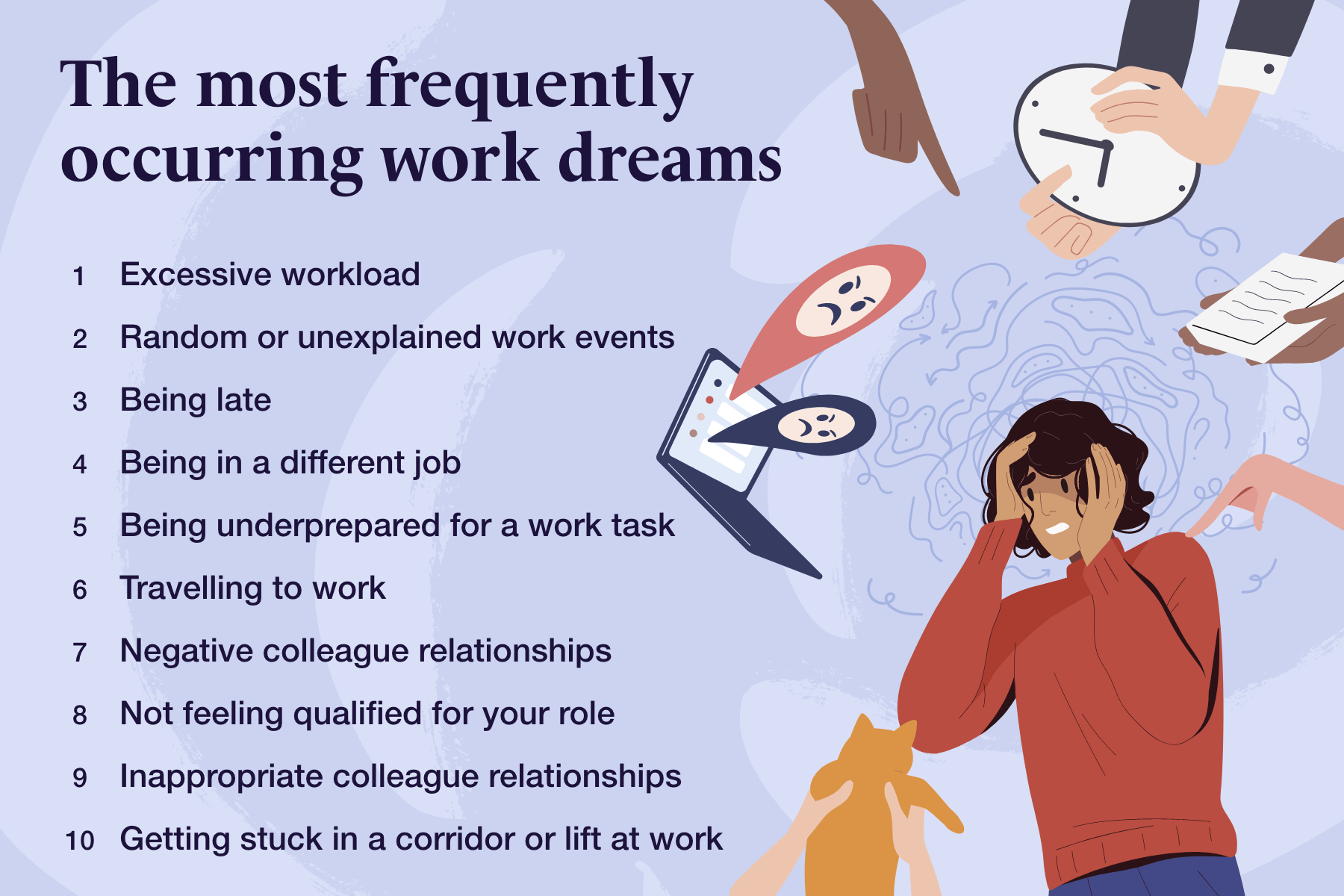
Unfortunately for the nation’s workforce, our research revealed that work-related dreams tend to be generally negative. We quizzed professionals what their most frequently occurring work dreams are and found that excessive workload came out on top.
It seems that this issue in particular can take a toll even when we try to switch off. We discovered that higher earners are most likely to dream about excessive workload. Although all jobs come with a degree of stress, this bracket seems more difficult to separate their everyday worries from their night-time thoughts.
Being late and issues around travelling to work also come up as regularly occurring dreams, alongside getting stuck in a lift or corridor and inappropriate dreams about co-workers.
“Dreaming about being late to work means that you are likely stressing over a potentially missed opportunity. If you are experiencing these dreams, try to set yourself goals in and out of the workplace, or speak to your boss about potential opportunities to grow.
“Getting stuck somewhere in your workplace, meanwhile, can mean that you are stuck in a position in your life, with no sign of moving forward. This kind of dream should make you think about your situation. It is time to relax, and think about what is important to you, it is never too late to change what you do, so consider your options and remember that you are not trapped.
“Inappropriate colleague relationships may seem concerning, but they are nothing to worry about and are quite normal. These dreams often occur when there is a need for a psychological union between you and that person, remember dreams are symbolic and not literal. It could also mean you admire an attribute of this co-worker, an attribute you would like to have yourself.”
We found that imposter syndrome – a feeling of inadequacy or under-qualification in your role – is a frequently-occurring theme within our dreams. Those in the legal profession were revealed to dream most about imposter syndrome, followed by workers in Finance and HR.
The data also revealed that imposter syndrome is more common amongst higher wage brackets, suggesting that people who earn more are more susceptible to feeling this way. However, the study also showed that imposter syndrome dreams peak at both Graduate and Director level, meaning it can strike someone no matter their level in a company.
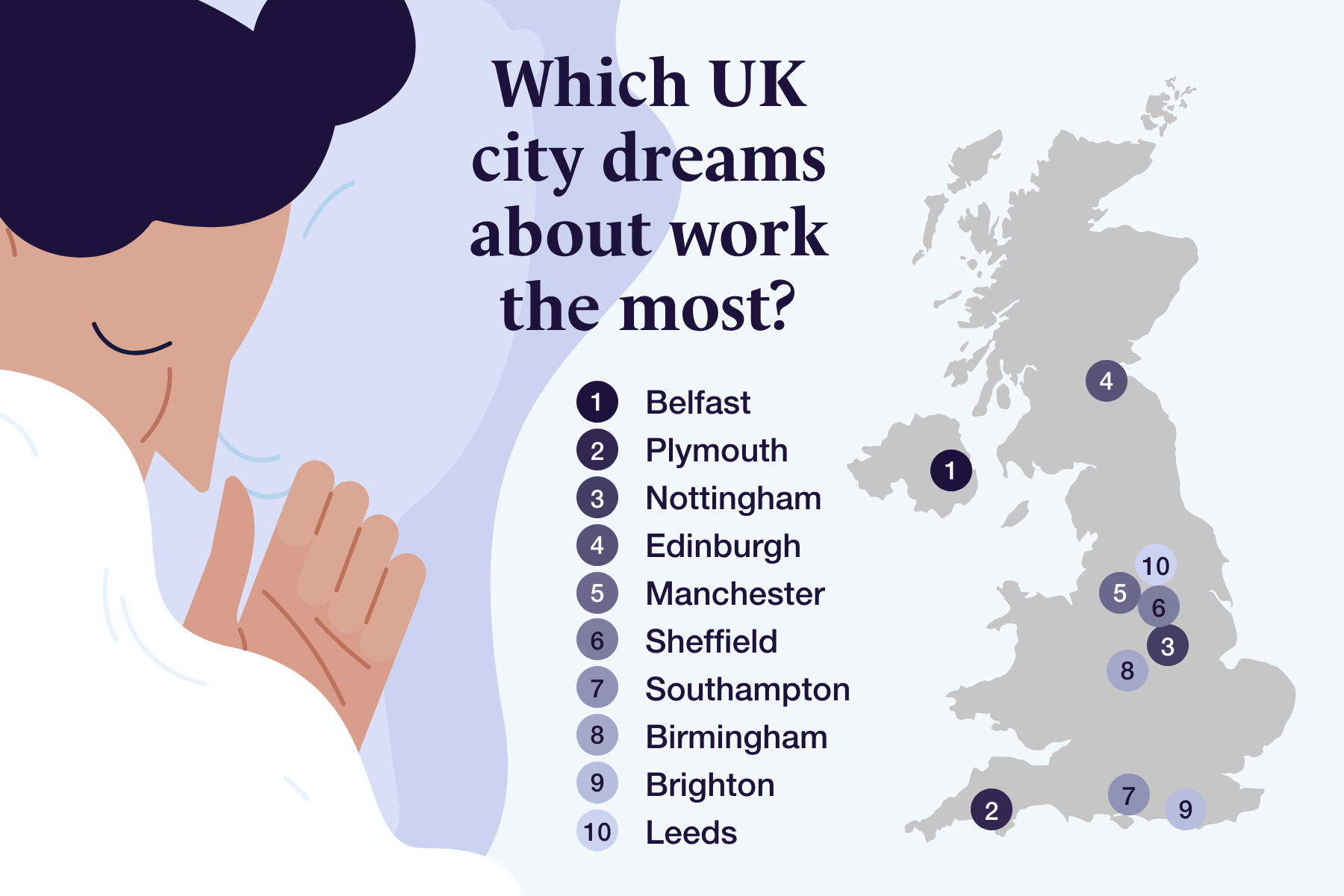
Our survey looked at where in the UK dreams most about work – we found that professionals in Belfast, Plymouth and Nottingham are the most likely to have work-related dreams.
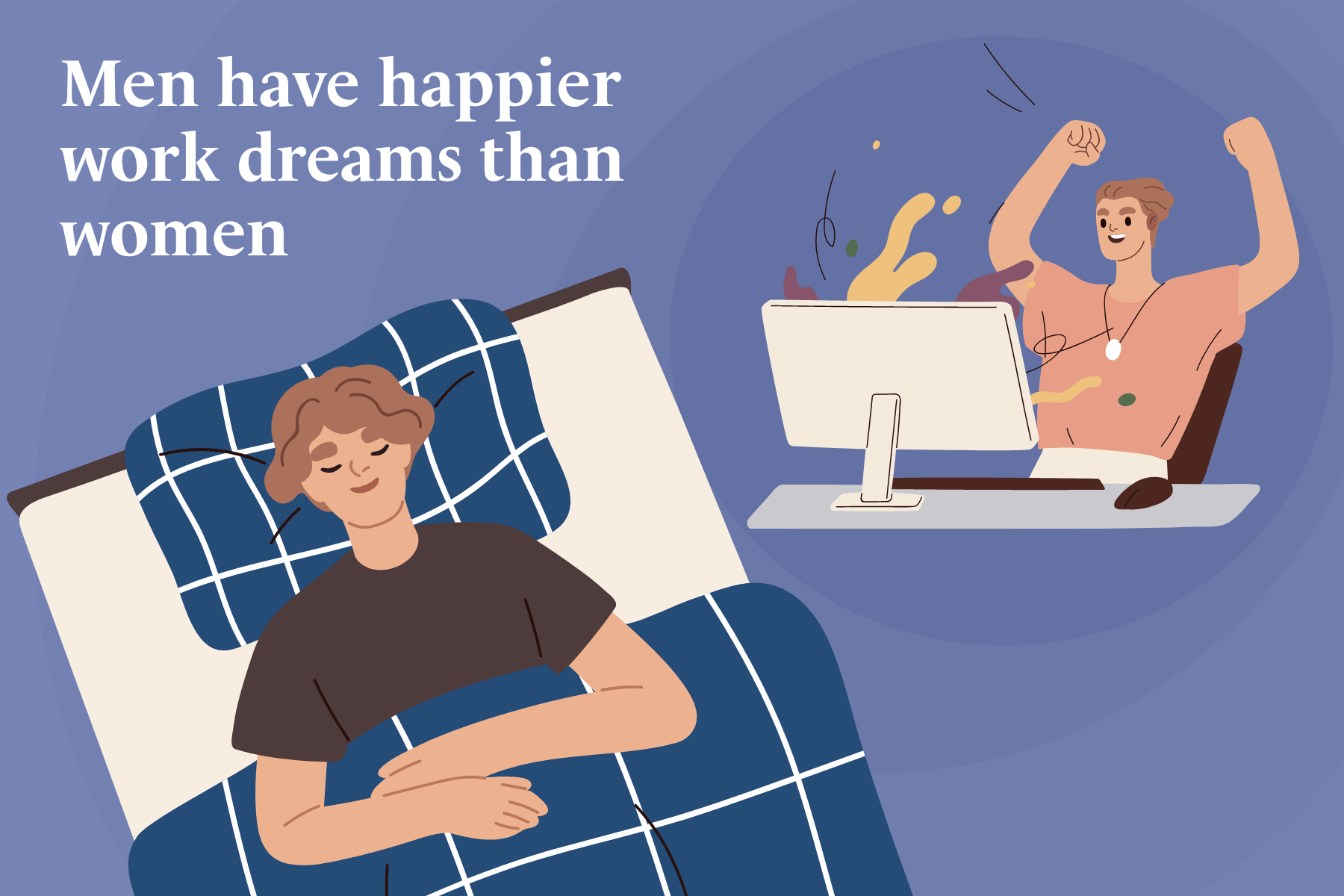
We also found that men tend to have happier work dreams, with 27% of men saying their work dreams are mainly positive, vs. 16% of women.
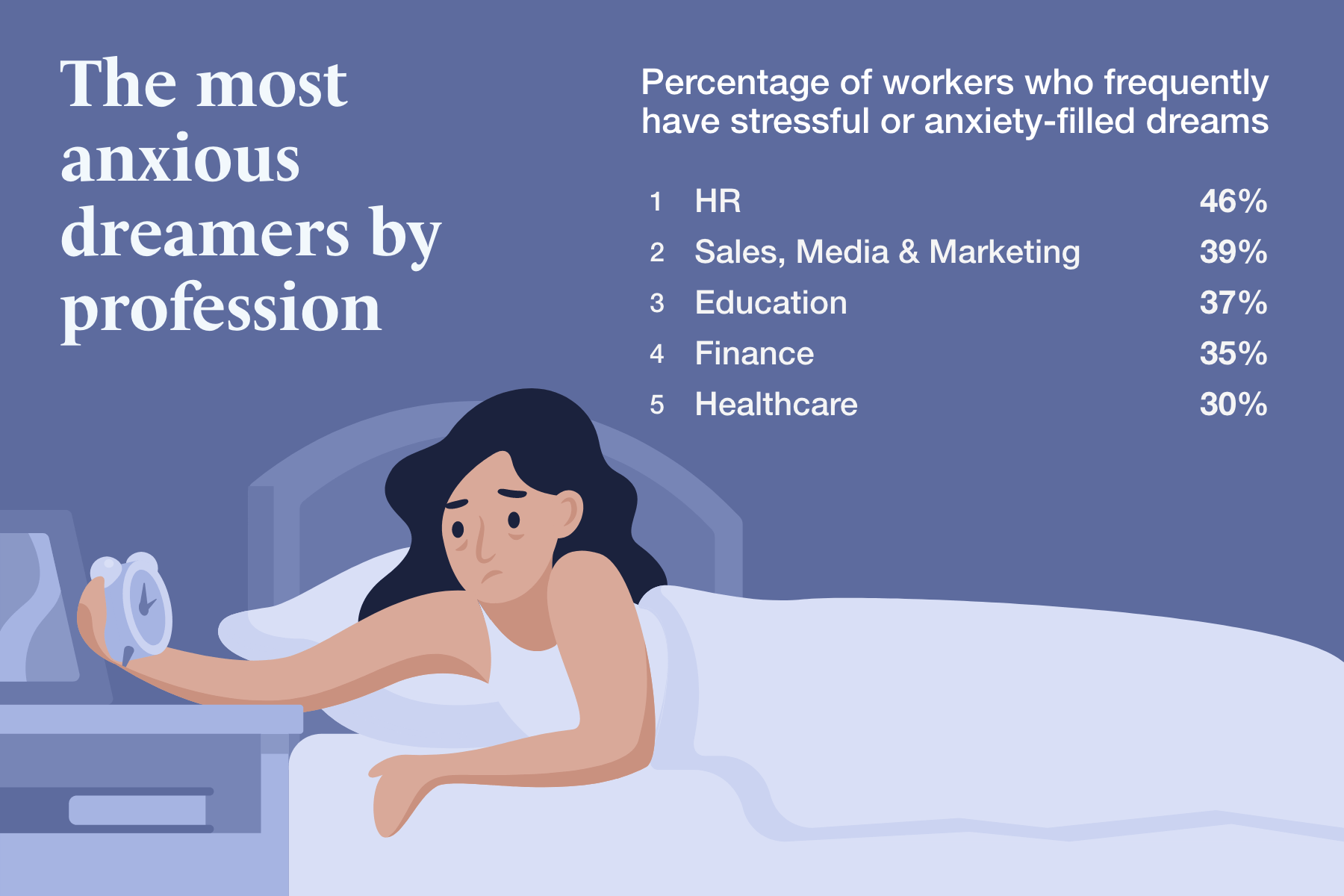
We asked UK workers how often they have stressful or anxiety-filled dreams and found people in HR come out top, with 46% of these professionals admitting that this is a frequent or very frequent occurrence.
Sales, Media & Marketing workers came second in the list, with 39% of workers experiencing anxiety-filled dreams, followed by those in the Education, Finance and Healthcare sectors.
A healthy sleep schedule can improve your mind and body function and alleviate anxious dreams as a result. So, we asked our sleep expert for 7 top tips for a better night’s sleep:
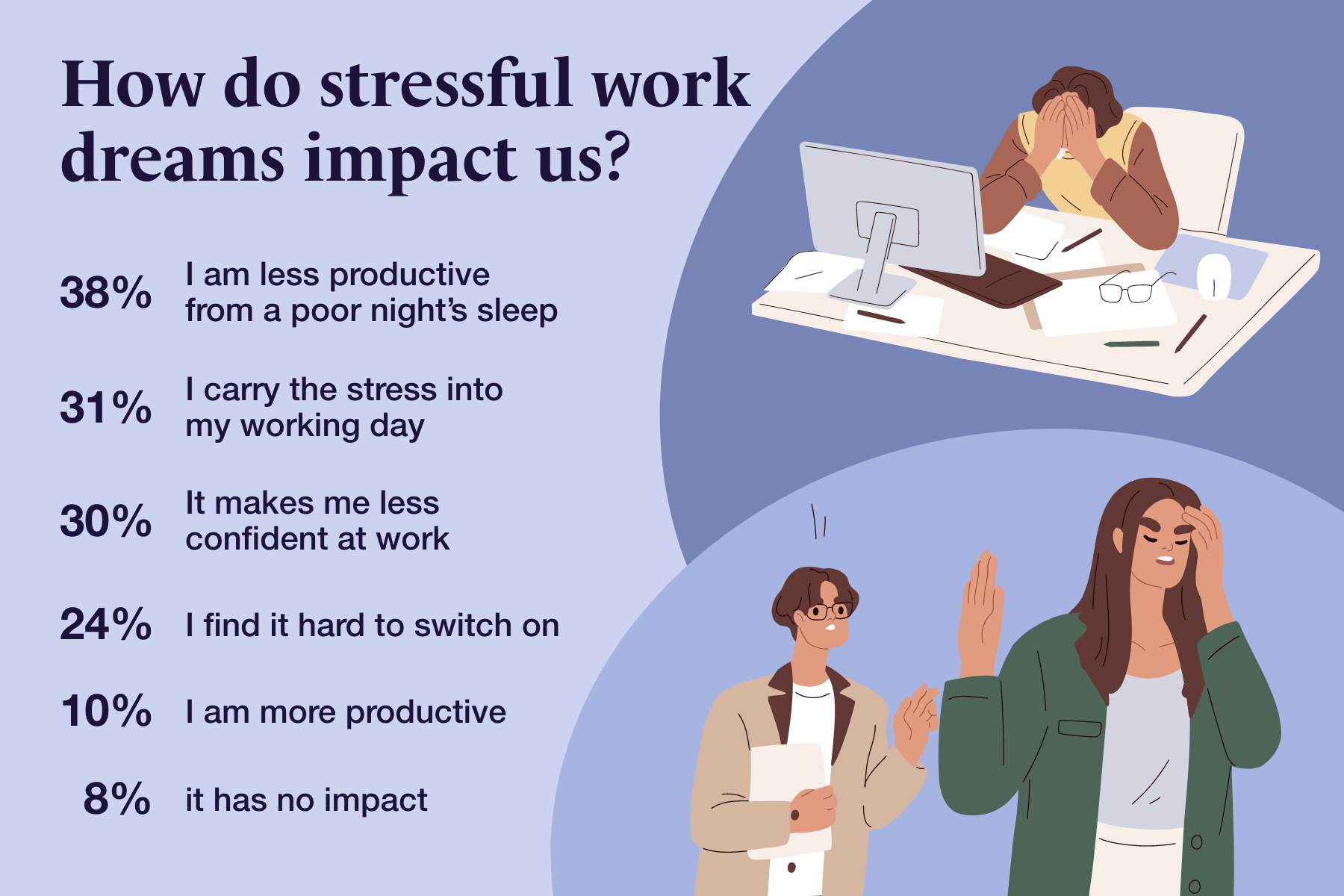
It’s one thing to have an anxious dream – but quite another if it goes on to impact your day-to-day life. We asked respondents if and how their stressful dreams change their state of mind or activity levels during the following working day.
In most cases, we found that stressful work dreams impact us negatively, aside from the 10% of those surveyed who feel more productive after a work dream, perhaps spurred on by their night of intense thoughts. A further 8%, or a total of 2,598,800 UK professionals, also feel their work dreams have no impact on them at all.
But for the rest of our respondents, they struggle the day after. Some feel less productive, some feel less confident, and others carry stress through with them into their working hours.
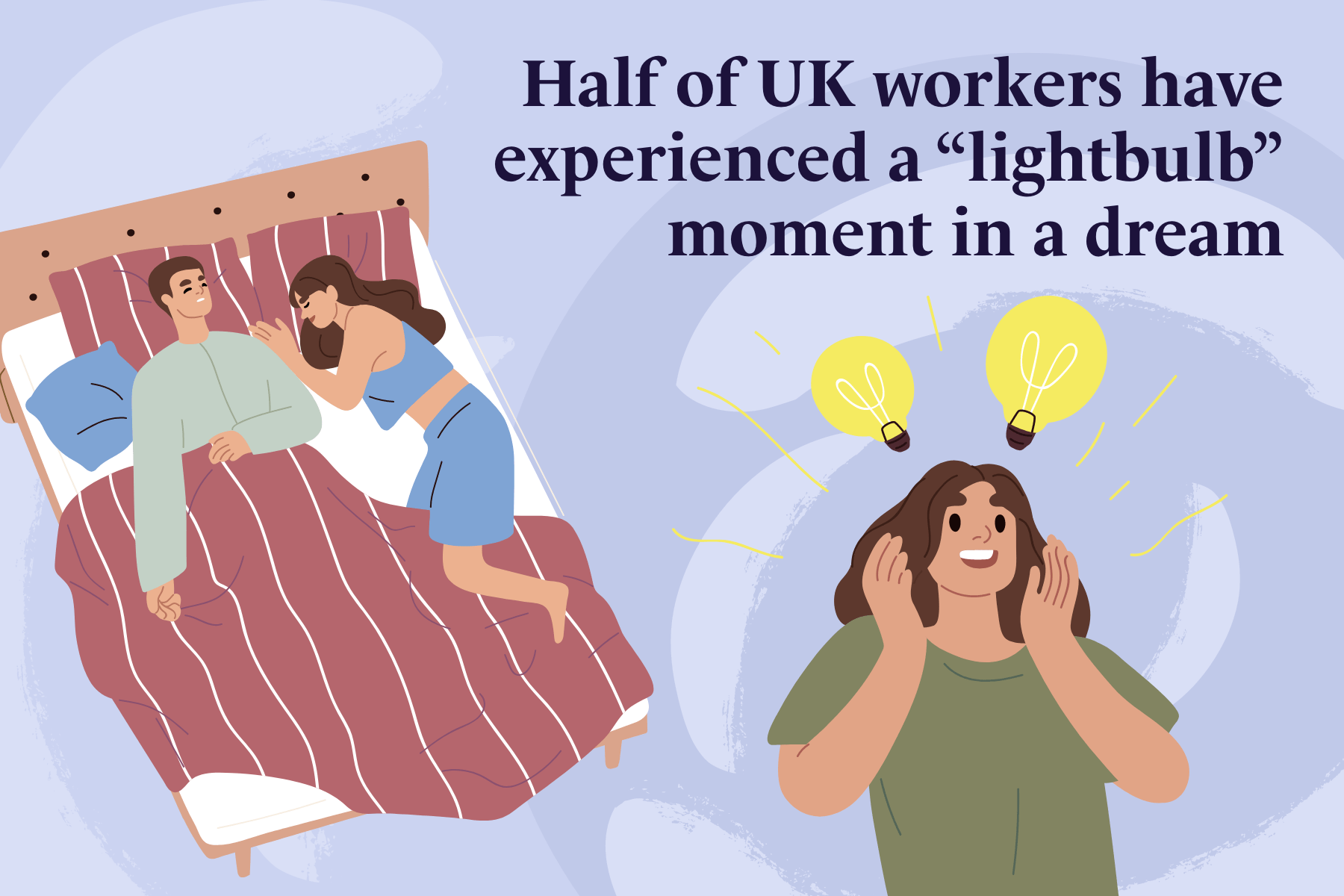
On a lighter note, we found that dreams aren’t always stressful. Half of workers we spoke to have experienced a ‘lightbulb’ moment in a dream, with one in five saying that this has happened on numerous occasions. That equates to a huge 6,497,000 people across the UK workforce. Coming up with a solution to a problem or figuring out next steps can clearly help us in our roles – showing that our subconscious is more on our side than we realise!
A restful night starts with a great place to sleep. Our luxury, bespoke bedroom furniture creates the perfect environment to drift off. And don’t forget to declutter. Our handcrafted fitted wardrobes will transform your dressing area and provide a place for everything, meaning you can focus on getting the best night’s sleep possible.
Methodology
We surveyed 2,205 UK professionals, collated the data and analysed the meaning of the results.